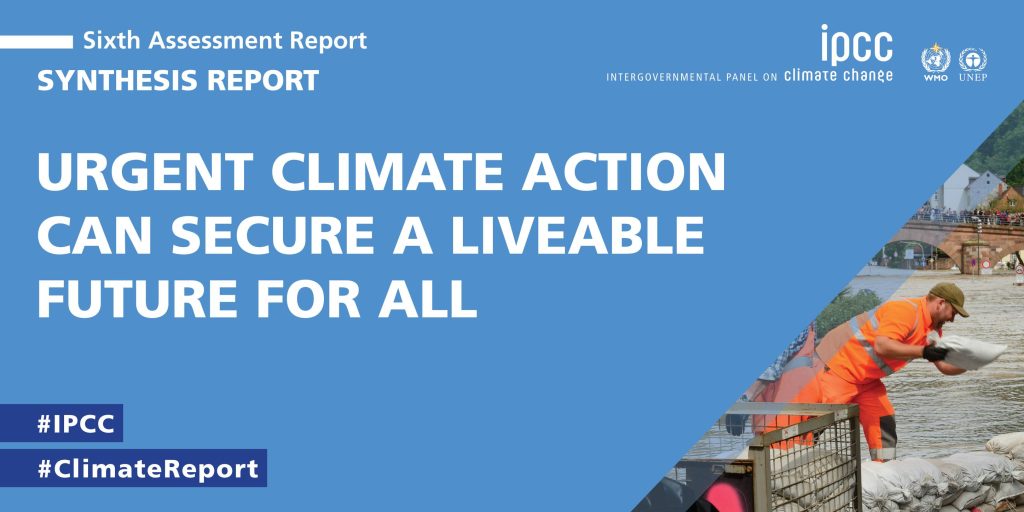
A propos du rapport de synthèse du GIEC – mars 2023
filtre:
Michael Mann
2023
Le climatologue belge Jean-Pascal van Ypersele, candidat malheureux à la présidence du Giec, a écrit une lettre ouverte "au nom du climat" adressée au président de la COP28, la conférence climat de l’Onu qui se déroule jusqu’au 12 décembre à Dubaï (Émirats arabes unis). Dans cette missive, cosignée par le climatologue américain Michael E. Mann, directeur du "Earth System Science Center" à l’université d’État de Pennsylvanie, M. van Ypersele entend rappeler "quelques données scientifiques essentielles" à Sultan Al Jaber, le président controversé de la COP28, également à la tête de la compagnie pétrolière émiratie Adnoc.
Le climatologue belge Jean-Pascal van Ypersele, candidat malheureux à la présidence du Giec, a écrit une lettre ouverte "au nom du climat" adressée au président de la COP28, la conférence climat de l'Onu qui se déroule jusqu'au 12 décembre à Dubaï (Émirats arabes unis).
Michael Mann, de l’université de Pennsylvanie aux États-Unis, fait partie des climatologues les plus en vue depuis qu’il a publié, en 1999, le célèbre graphique en forme de crosse de hockey, qui montre comment les températures mondiales ont grimpé en flèche au cours du siècle dernier. Pour comprendre la situation difficile dans laquelle nous nous trouvons aujourd’hui, Michael Mann a remonté l’histoire du climat de la Terre afin d’avoir une vision plus claire de notre avenir potentiel. « Nous disposons d’une période de 4 milliards d’années dont nous pouvons tirer des enseignements », a-t-il déclaré dans une interview au Guardian.
The renowned US scientist’s new book examines 4bn years of climate history to conclude we are in a ‘fragile moment’ but there is still time to act
Dr. Michael E. Mann is Presidential Distinguished Professor in the Department of Earth and Environmental Science at the University of Pennsylvania, with a secondary appointment in the Annenberg School for Communication. He is director of the Penn Center for Science, Sustainability, and the Media (PCSSM). Dr. Mann received his undergraduate degrees in Physics and Applied Math from the University of California at Berkeley, an M.S. degree in Physics from Yale University, and a Ph.D. in Geology & Geophysics from Yale University. His research interests include the study of Earth's climate system and the science, impacts and policy implications of human-caused climate change.
Previously, anthropogenic ecological overshoot has been identified as a fundamental cause of the myriad symptoms we see around the globe today from biodiversity loss and ocean acidification to the disturbing rise in novel entities and climate change. In the present paper, we have examined this more deeply, and explore the behavioural drivers of overshoot, providing evidence that overshoot is itself a symptom of a deeper, more subversive modern crisis of human behaviour. We work to name and frame this crisis as ‘the Human Behavioural Crisis’ and propose the crisis be recognised globally as a critical intervention point for tackling ecological overshoot. We demonstrate how current interventions are largely physical, resource intensive, slow-moving and focused on addressing the symptoms of ecological overshoot (such as climate change) rather than the distal cause (maladaptive behaviours). We argue that even in the best-case scenarios, symptom-level interventions are unlikely to avoid catastrophe or achieve more
In this sweeping work of science and history, the renowned climate scientist and author of The New Climate War shows us the conditions on Earth that allowed humans not only to exist but thrive, and how they are imperiled if we veer off course.

